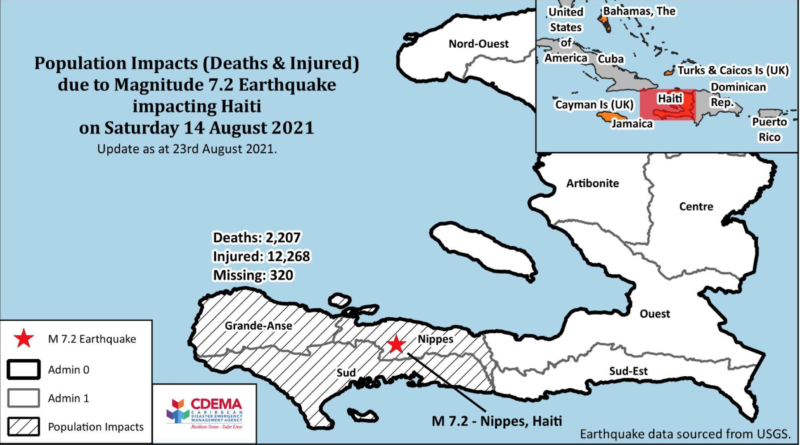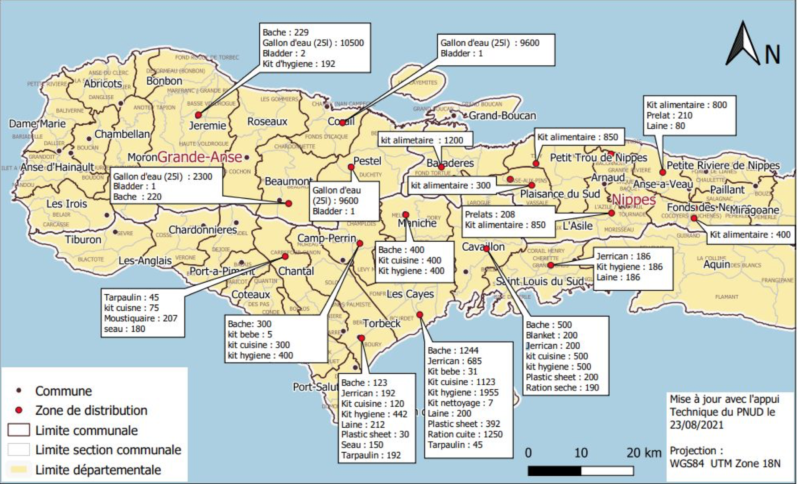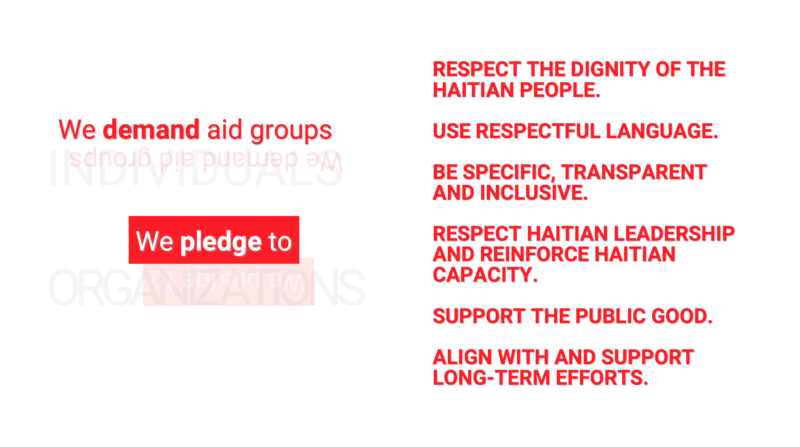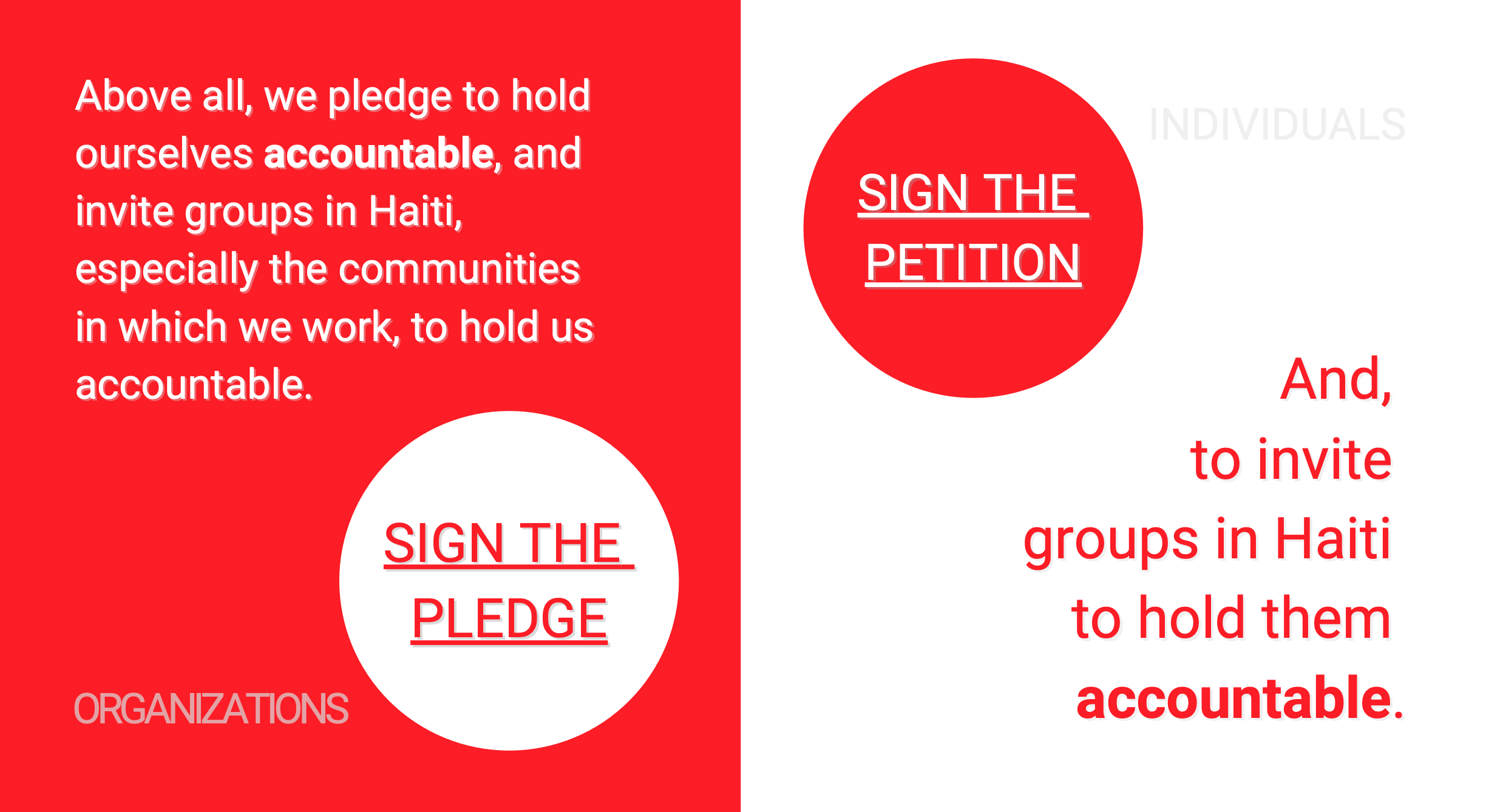
It has been two weeks since an earthquake struck the southern peninsula of Haiti. Assessments of the impact of the earthquake are still being developed as harder to reach communities remain isolated from relief efforts. As of now the numbers of people killed and injured rest at 2,200 and 12,200. Over 300 people are officially still missing. Likely these numbers remain undercounts.
The map below summarizes aid deliveries as of August 23 (at least those tracked by the government). One can see that the areas near Les Cayes have received the most attention, whereas communities in Nippes and the Grande Anse (aside from Jeremie) are still waiting for support.

In terms of Quixote Center activity, we are supporting deliveries of emergency supplies into Baradares through the Fondasyon Mapou and to areas in the south, near Les Cayes with the Kolektif pou Lakay. Both of these efforts are in process. We will share more as we get detailed report-backs from our partners.
From Kolektif pou Lakay: "Here is the list of actions we plan to take on the ground. Your contribution is always important to help people in the South." If you are on Twitter click below to follow them.
Men lis aksyon nou konte mennen sou teren. Kontribisyon w toujou enpotan pou ede moun nan Sid. #Haitiearthquake2021 #GranSid pic.twitter.com/oehMaeR18d
— KolektifPouLakay (@kolektiflakay) August 23, 2021
We are also supporting the Haiti Response Coalition's team of community organizers who are engaged in assessments in underserved communities in Nippes and the Grande Anse departments. Currently, the majority of our emergency response funds are being used to provide direct cash assistance to families in these departments. HRC community organizers are doing household surveys in communities in southern Nippes near the epicenter of the quake. Based on these surveys, funds are delivered direct to families so they can purchase immediate needs - especially food at the local markets.
Aid Accountability: Take the Pledge


Haiti Response Coalition, working in collaboration with a collective of organizations including Nou Pap Dòmi, Ansanm pou Ayiti, Konbit pou yon Ayiti Tèt Anwo (CHW-KATA), and the Haitian Ladies’ Network, developed the Pledge for New Minimum Standards. The pledge invites organizations engaged in emergency response work to abide by a core set of principles in their work. In summary, the key principles in the pledge are:
- We pledge to respect the dignity of the Haitian people.
- We pledge to use respectful language.
- We pledge to be specific, transparent and inclusive.
- We pledge to respect Haitian leadership and reinforce Haitian capacity.
- We pledge to support the public good.
- We pledge to align with and support long-term efforts.
- Above all, we pledge to hold ourselves accountable, and invite groups in Haiti, especially the communities in which we work, to hold us accountable.
We are inviting other organizations and individuals to take this pledge - which you can do on the HRC website here.
The companion petition where individuals can call upon organizations to take the pledge is here.
The full pledge is available in English and Creole.
One note on the pledge and our work. You may notice that we are not sharing photos of Haitians living in tents, and standing outside of crumbled houses. For some time we have avoided using such images, but are making this a more intentional standard, by which we do not use the images of people who have not offered their consent. We trust that you can understand the magnitude of the situation without us sharing photos of people in crisis.
If you are able to support the work we are doing, please make a donation to our Haiti Emergency Response Fund here.

